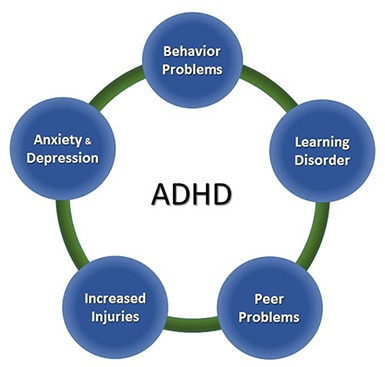Rank: Member
Groups: Member
Joined: 1/24/2020
Posts: 14
Location: n/a
|
Attention deficit hyperactivity disorder (ADHD) is the most common neurodevelopmental disorders of the children. It usually first diagnosed in childhood and often lasts into adulthood. Children with such psychological conditions may have trouble paying attention, controlling impulsive behaviors that means they may act without thinking about the result or be overly acting.

Signs & Symptoms
It is usual for children with ADHD to have trouble focusing and behaving at the same time. However, children with this condition do not just grow out of these behaviors. The symptoms continue, can be severe and lead to difficulty at home, school, or with friends.
A child with Attention Deficit Hyperactivity Disorder might:
daydream a lot, squirm or fidget
have a hard time resisting the temptation
forget or lose things a lot
talk too much
have trouble taking turns
make careless mistakes or take unnecessary risks
have difficulty getting along with others
Causes of ADHD
Researchers are working on its causes and risk factors to find the best ways to treat and reduce the chances of a person having this condition. The real risk factors and causes of ADHD are still unknown, but current research shows that genetics plays a crucial role.
In addition to genetics, medical experts are studying other possible risk factors and causes, including:
Brain injuries
Exposure to environmental during pregnancy or at a young age.
Premature delivery
Tobacco or alcohol use during pregnancy
Low birth weight, etc.
Researches do not support the popularly held views that ADHD caused by watching too much television, overeating sugar, parenting, and social, environmental factors such as family chaos or poverty.
Treatments
In most people, ADHD best managed with a combination of medication and behavior therapy. For School-aged children (about 4 to 5 years old) with attention deficit hyperactivity disorder, behavioral therapy (particularly training for parents) recommended as the first-line treatment. Which medicine works best can depend on the family and child. Good management plans will include follow-ups, close monitoring, and making changes, etc.
|